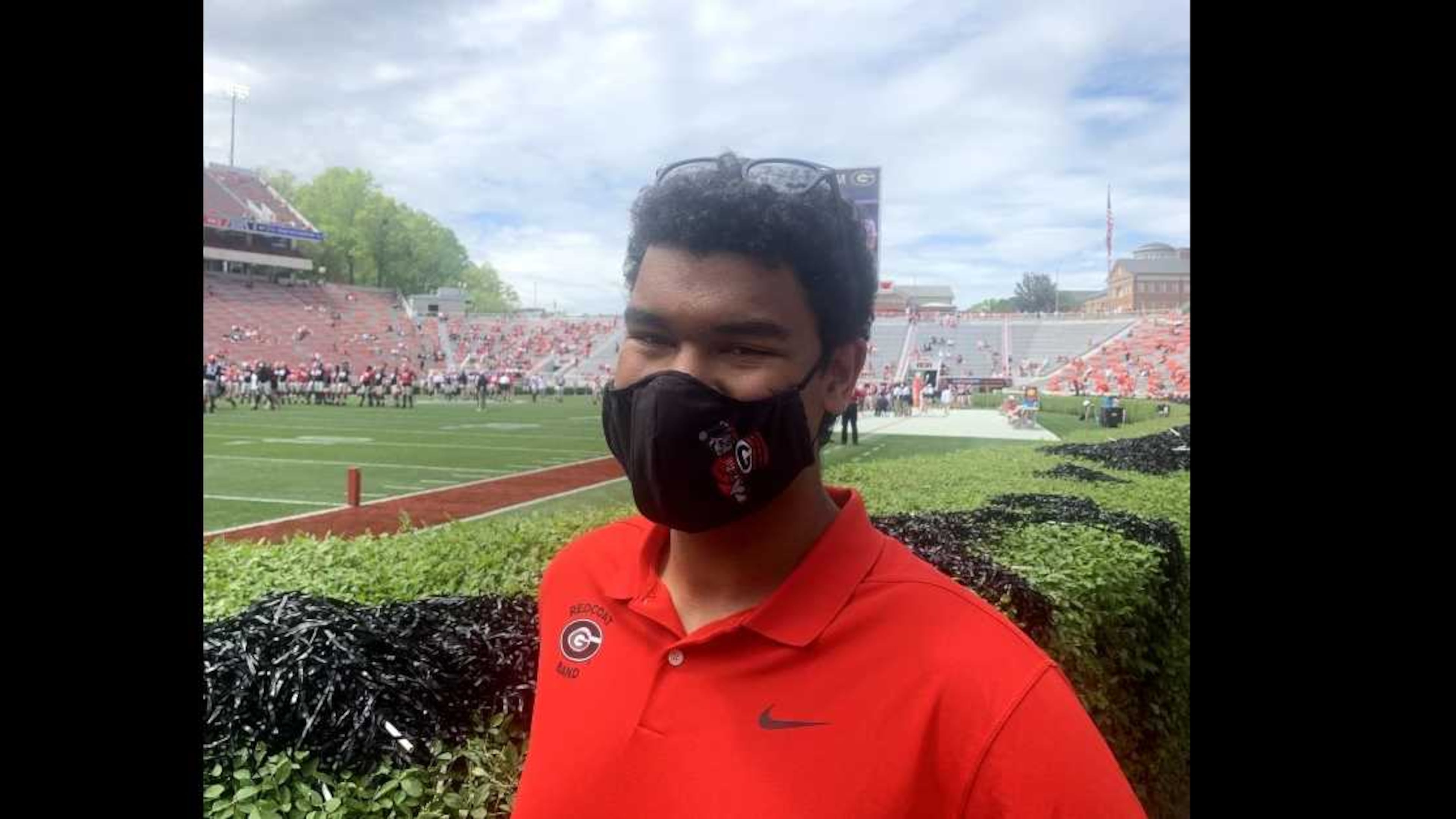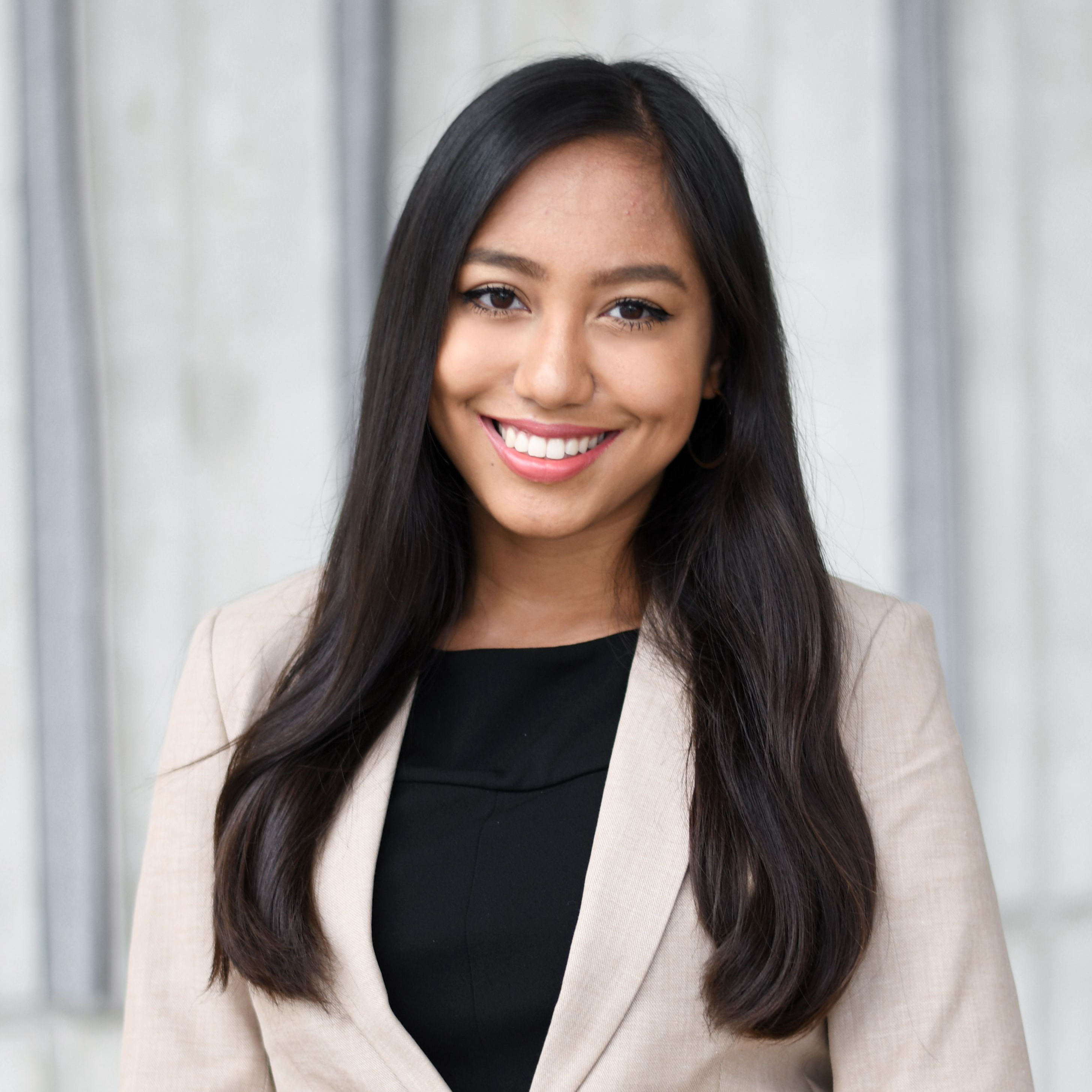Freshmen 2.0: Georgia colleges give sophomores overdue welcome to campus

Georgia Gwinnett College sophomore Isabel Rodriguez-Gonzalez’s freshman roommate recently asked her what the campus is like.
“I know as much as you do,” she replied.
Rodriguez-Gonzalez, 19, who took all of her classes online as a freshman, was on campus just three times last school year. Like many college sophomores, she knows little about the campus.
The first year of college is supposed to be one of the seminal moments in life; a time of independence, personal growth, new experiences and the beginning of lasting friendships. COVID-19 took that away from Rodriguez-Gonzalez and thousands of students across Georgia last year.
The students and their schools are trying to recapture that lost time by renewing those interrupted rituals and creating new traditions. The fall semester begins this week on some campuses.
Rodriguez-Gonzalez, who lived with her family last year, moved in student housing this year in part to have a fuller campus experience. The college is including sophomores in its main tradition for first-year students, marching underneath the arch located on the center of the campus.
The University of Georgia’s plans for rising second-year students include campus tours, workshops to explain various services and inviting them between the hedges at Sanford Stadium to assemble into the iconic “G” for their official class photo, usually taken during freshman orientation.
Emory University has scheduled three days of sophomore welcome events that include special drop-in hours so students can learn about campus resources, such as academic advising, a cookout and a meeting with its president.
Spelman College in Atlanta will gauge how sophomores are performing academically to potentially provide additional support. There are plans for other special events for sophomores, including a gala in September since many of its second-year students didn’t have a high school prom.
“You can never fully recapture the lost events or activities for the sophomore class, but what colleges can do is to ensure that we are creating spaces on our campuses where these students feel a tremendous sense of belonging and welcome,” Spelman’s vice president for student affairs, Darryl Holloman, told The Atlanta Journal-Constitution.
Making students welcome is important to reverse some of the negative trends of the last year. Enrollment declined last fall nationally among first-year students by an unprecedented 13%, according to federal data. Schools want those freshmen who did enroll to return and to eventually complete their degrees.
Georgia State University, which has more students than any university or college in Georgia, saw an 8% increase in the number of D and F grades and in the withdrawal rate among first-year students. Georgia State and Georgia Gwinnett created programs this summer semester, primarily for first-year students, to retake a class in which they received a grade of a D or F or withdrew from the class. Rodriguez-Gonzalez said she was disappointed by the two C’s she had during the spring semester, which she attributed to the isolation of taking classes remotely.
UGA attempted to ease the transition last fall for first-year students with initiatives like Dawgs Together, a peer program that connects first-year and transfer students with the veterans on campus. The university and other schools offered more mental health services. UGA had a 50% increase in first-year students seeking mental health services after the first month of the fall semester.
On their own
Matthew Motley said he initially felt “like a stranger” at UGA. Most of his classes were online, and because many shops and restaurants near campus had limited hours, Motley said he didn’t really get to explore Athens. Motley, 19, who came to UGA from Kansas, wanted to play intramural sports, but they weren’t being offered, he said.
This year, he’s hoping to play intramural softball and meet more friends.
“I’m looking forward to a more normal college experience,” said Motley, a computer science and music major who plays the tuba for the UGA Redcoat Marching Band.

Many sophomores interviewed talked about seemingly small, but important things that will ease the transition back to school.
Fellow Redcoat member and rising sophomore Yara Manasrah said it would be helpful for UGA to ensure sophomores are prioritized for campus parking, discounted textbooks, and meal plans since she said they didn’t get a full meal plan last year.
“Finances have become really difficult for many families, including my own,” she said. “Giving sophomore students a discount in the bookstore is one way that UGA can begin to alleviate the financial burden of college for its students while in turn increasing the amount of business conducted in the bookstore as compared to other book purchasing services.”
Spelman sophomore Breah Banks said she and classmates navigated many aspects of their first-year experience on their own last year. The students created an Instagram account for their class to communicate with one another since the historically Black college for women did not allow students on campus for the fall semester. They created a similar account to connect with first-year Morehouse College students, their sibling school.
Spelman allowed a small group of students on campus for the spring. Banks, 19, from Minneapolis, was one of about 300 of those students. She and other first-year students learned about parts of the unusually quiet campus, in some instances exploring various buildings by themselves.

Banks, the first-year class council president and sophomore class president for the upcoming school year, said classmates want activities, like movie nights, to build the bonds of sisterhood that make Spelman a destination for many Black female students. She uses the word “united” frequently to describe the return.
“We’re all excited to see each other, finally,” said Banks, a psychology major.
Starting from scratch
Rising Georgia Tech sophomore Jojo Craven was excited to attend school close to home, coming just 30 minutes away from the Atlanta campus that she toured twice before the pandemic.
The pandemic, however, created a major barrier. Because Craven and her mother have autoimmune diseases, their family immediately isolated from everyone, not even daring to go to the grocery store.
So when a vaccine wasn’t available by the start of last school year like she had hoped, Craven decided to stay home in Roswell. From the beginning of the school year until she got vaccinated in the spring, Craven rarely saw people other than her family and her boyfriend.
Craven said she doesn’t regret her decision, pointing to a number of her friends who went to school in person and contracted the virus. However, that isolation took a toll on her mental health despite trying to keep active through balancing online schoolwork and joining the Alpha Phi sorority.
“I have a lot of anxiety, and being at home definitely made it a lot worse,” Craven said. “I’m definitely excited to have freedom away from living at home and excited to have classes in person again.”
Though she was able to visit the campus after getting vaccinated in the spring and has made friends through her sorority, she worries that establishing a social life essentially from scratch will be difficult. “It’s just very new, and I feel very late to the game,” she said.
’Like I’m a freshman, but I’m not’
The University System of Georgia, which includes Georgia Tech, last school year offered more in-person classes at its 26 schools and opened student housing on all of its campuses. Many private colleges and universities in Georgia, such as Emory University, held more classes online and allowed fewer students to live on campus.
A rising sophomore at Emory’s Oxford campus, Olivia-Alexis Calderon jumped at the opportunity to be an orientation leader and show incoming freshmen around, a volunteer position that entails providing advice from what classes to take to where to go for fun. But recently, she said she has had reservations about the position.
The problem? Calderon has never set foot on the campus she’s supposed to be an expert on.
“I’m just nervous because I have no idea where anything is,” she said. “It’s pretty much like I’m a freshman, but I’m not.”
Originally from Long Island, New York, Calderon said she chose not to come to campus last year because she didn’t feel that the environment was worth paying for: single rooms without a roommate, classes taken from that room alone, limited in-person activities.
“I realized that COVID was very hectic and unpredictable last year, and … the safety precautions were definitely great, but I just didn’t feel comfortable being in a dorm room by myself and basically staying there for a full semester,” Calderon said.
While Calderon said she doesn’t regret staying home, she noted that a lot of things were “definitely lacking.” Working up to two jobs while taking 17 credits per semester and attempting to kindle a social life solely online caused significant stress, she said.
“It definitely messed up my health; all that stress impacted my appetite,” Calderon said. “Even though there were a lot of restrictions with students not being able to leave their rooms and mingle, I still felt disconnected from everyone, and I think that’s how most of the online kids felt.”
The friends she did make, Calderon said, were primarily other online students like her who did not move onto campus.
Going into the new school year, she hopes that being involved as an orientation leader, as well as becoming a Spanish tutor and joining clubs, will ease the transition.
“I’m just trying to go with the flow and hope everything works out,” Calderon said.
Getting the full experience
Back at Georgia Gwinnett College, Rodriguez-Gonzalez also hopes to get involved in campus clubs, like photography. Her eyes widened upon entering her dorm room for the first time last week.
“Whoo!” she said to her mother, looking at her name on the door.
Student housing leaders feted her with snacks and cheerful welcomes.
“Are you new?” one asked.
“Technically returning, I guess,” she replied.
The college’s president, Jann Joseph, dropped by as she welcomed students. Joseph suggested she visit downtown Lawrenceville, a short drive from campus, saying the restaurateurs and shop owners are excited for the return of students. The president encouraged her to get involved in student government or start a club if there aren’t any that fit her interests.

“We have done everything we can so that you can get the full experience,” Joseph said.
Rodriguez-Gonzalez met with her resident adviser after unpacking and plans to explore the campus until her roommates arrive. Perhaps by then, she’ll be able to explain to all of them what it’s like on campus.
For now, she said, “it is pretty exciting to be living on my own for the first time.”
Back on campus
The first full day of classes at some of metro Atlanta’s largest colleges and universities:
Aug. 9: Clayton State University, Georgia Gwinnett College
Aug. 11: University of West Georgia
Aug. 16: Kennesaw State University
Aug. 18: University of Georgia, Clark Atlanta University, Morehouse and Spelman colleges
Aug. 23: Georgia State University, Georgia Tech, University of North Georgia
Aug. 25: Emory University




